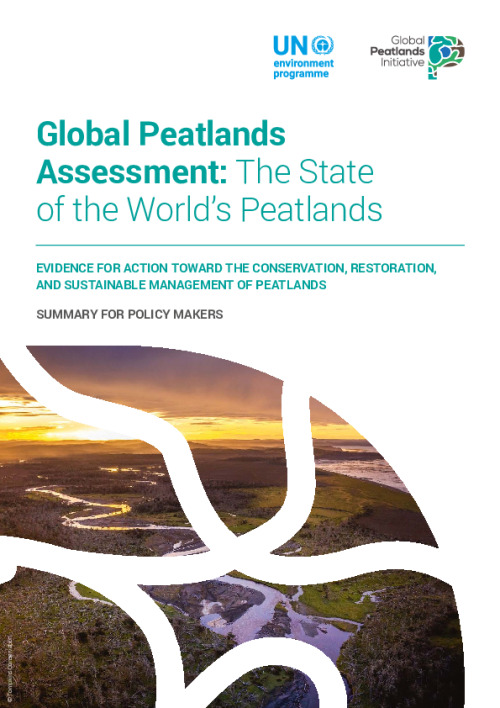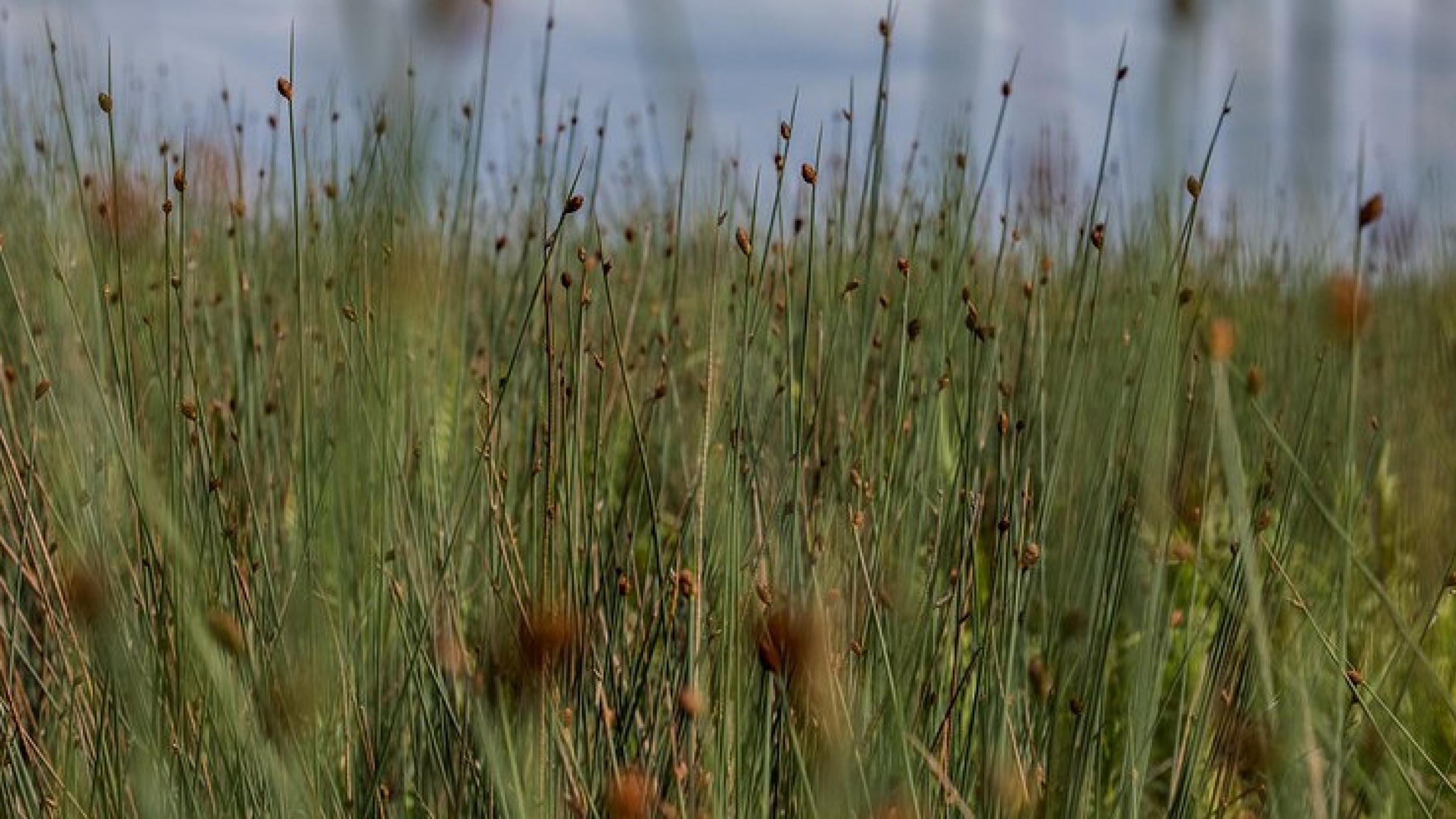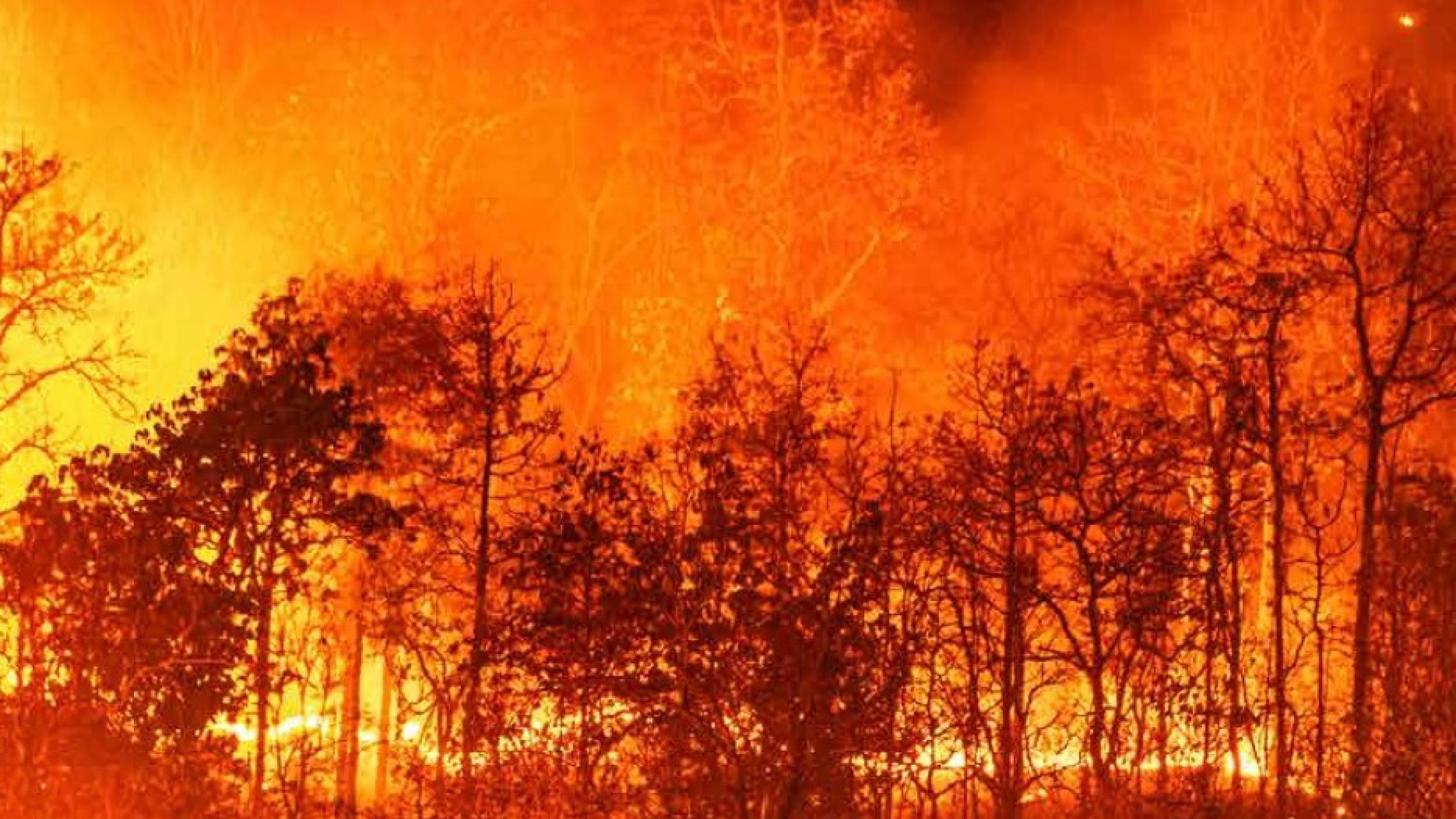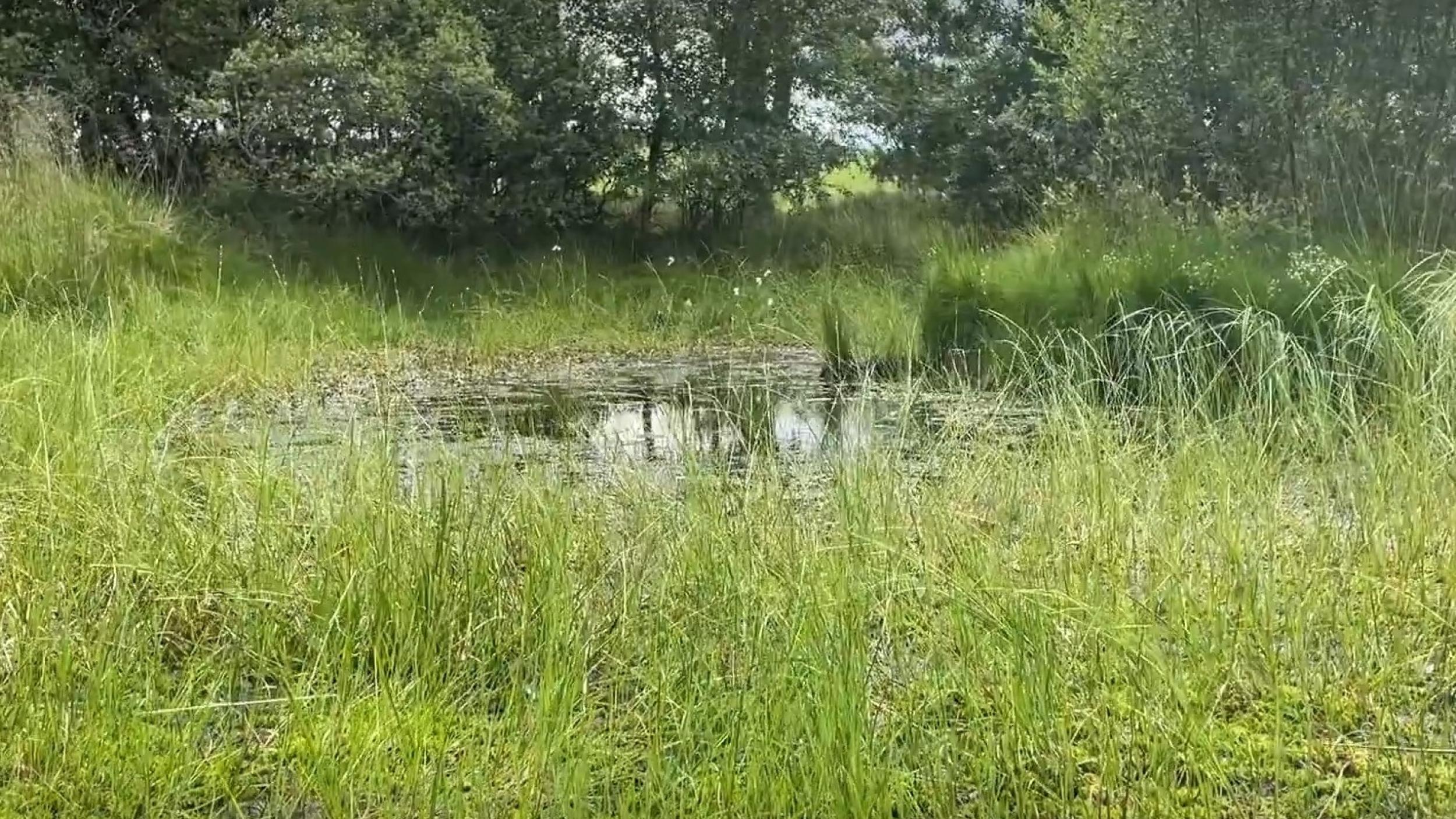Global Peatlands Assessment: The State of the World’s Peatlands - Summary
Publication date
Organization
Type
Language
Peatlands are ecosystems with a unique type of peat soil formed from plant material that has only partially decomposed due to water saturated soil conditions (and in polar areas also due to the cold). While they are relatively rare, covering around 3-4% of the planet’s land surface, they contain up to one third of the world’s soil carbon. This is twice the amount of carbon as found in the entirety of Earth’s forest biomass. Keeping this carbon locked away is absolutely critical to achieving global climate goals.
The Global Peatlands Assessment is the most comprehensive assessment of peatlands to date. It has been created by a group of 226 contributors from all regions of the world to provide a better understanding of what peatlands are, where they are found, what condition they are in, and how actions can be taken to protect, restore and sustainably manage them. It also provides a valuable baseline for improvement against future assessments and paves the way for the development of a comprehensive global peatland inventory. It was created using expert-based reviews with new data on the extent and state of the world’s peatlands and clearly reveals regions where information on peatlands is particularly scarce so follow up work can be conducted to fill these data gaps.




